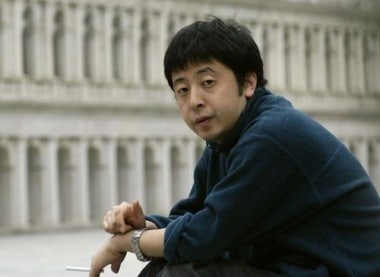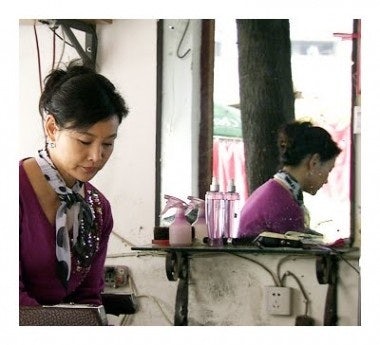Jia Zhangke Discusses Production Company, New Projects, Fifth- And Sixth-Generation Filmmakers#

Two weeks ago, the Jing Daily team had the opportunity to interview Jia Zhangke (Platform, Still Life, 24 City), one of China's top contemporary filmmakers, at the Museum of Modern Art (MoMA) in New York during its retrospective of Jia's work.
Last week, we posted
Part One#
of our interview, in which Jia Zhangke discussed key developments in film production in China, his personal experiences as a young director in Beijing in the mid-'90s and support of young directors there today, and the difference between being an "underground" director and one who operates within China's state film system.
In
Part Two#
, Jia discusses his film production company, XStream, and some of the upcoming projects he is currently involved in -- both as a director and producer. The Jing Daily team would like to thank Jia Zhangke and Eva Lam of XStream again for their time, and express our gratitude to Jytte Jensen and Meg Blackburn of MoMA for organizing the interview.
Jing Daily (JD): Now you’ve got your own production company. How are your films produced? We understand you have several production partners. Are they involved in the Chinese film system? If so, how many are? If not, what has your experience been like thus far as an independent film company?#
Jia Zhangke (JZK):#
My company is called XStream. Aside from my own movies and movies by my cinematographer Yu Lik-wai (余力为), who is a director as well, we also produce films in cooperation with other directors. Aside from our own work, every year we’ll produce two to three films from other directors, especially young directors. This year we’ve already finished one film, Hello Mr. Tree by Han Jie, which is currently being edited. We’re set to start filming another movie in a couple of months.
As for the money side of things, in China’s current financial environment there are plenty of companies that are interested in the film industry, so it’s pretty easy to get funding domestically. Our capital is usually raised locally. In terms of distribution, generally speaking, we go through state-owned companies, in particular those film groups with whom we’ve had long-term relationships and previously cooperated, such as the Shanghai Film Group. Why do we have to find a state-owned distributor? It’s like I’ve said, the distribution channels are still controlled by state-owned companies. They’ve got the right to speak.
I really hope that when these young directors finish their films they can secure distribution and get circulated. But since the distribution channels are the way they are, I think that cooperation is the best way to go. Through cooperation we can ensure the work of these young directors can enter the movie theater lineups.
Generally speaking, these state-owned companies only put in around one-quarter of the cost, so in a cultural sense I would say we [at Xstream] are independent producers. But from the perspective of our cooperative efforts, we still have other partners. Of course there is no need for too many of them, because our aim is to combine resources and ensure that our movies are able to be seen in the future, to have a future outlet.
JD: Tonight at the screening, we’ll see a preview of your new documentary about Shanghai [Shanghai Legend (I Wish I Knew)], which we hear is going to be screened at the Shanghai World Expo in May. What inspired you to make this film? Were other partners involved, or did you decide for yourself to make the film, then look for distribution partners later?#
JZK#
: I’m very, very interested in Shanghai. I started learning about and studying Shanghai during my sophomore year of college. I’ve put about ten years of preparation into this documentary, and always hoped to shoot it, and since this year the Shanghai World Expo will take place I was able to get funding for it. I’ve had lots of plans that over time evolved into this film, the first of which was to adapt a novel by the French writer André Malraux. In China it has two different translations, one of which is La Condition Humaine and the other is Man’s Fate.
Since I wanted to adapt that novel, I started collecting material about Shanghai. Halfway through that process, though, I decided to make a documentary about the city. I particularly wanted to go overseas to find people who came from Shanghai. Since Shanghai is an immigrant city, you can find people with some connection to Shanghai all around the world. They still have their memories, like about 1930s Shanghai. If I had started shooting earlier, I think I would’ve preferred to deal with 1920s Shanghai, but ten years after I first thought of doing this project, lots of people [who lived there at that time] have since passed away.
In the new documentary, we start from the 1930s, talking to people who are still alive who remember that time. To me it’s a bit late, but that’s fine. At least we can look at the 1930s onward.

JD#
:
The Sixth Generation filmmakers have made a great contribution to contemporary Chinese history. What do you feel is the biggest difference between your generation – the Sixth Generation – and the Fifth Generation filmmakers who preceded you?#
JZK#
: In my opinion, there are huge differences. One of the biggest differences is that the work of the Sixth Generation filmmakers looks more at personal experiences, involves more personal perspectives, and originates more from personal viewpoints. Whether we look at history or the present day, we include our personal judgments as well as our personal emotions. In terms of the Fifth Generation filmmakers, maybe it’s just because of the way they grew up – their background or education – but they still conceptualize Chinese society in terms of the mainstream ideology.
I often like to give an example: take Zhang Yimou for example. He’s made many incredible movies, like The Story of Qiu Ju and Not One Less. They’re fantastic films. But the biggest difference between movies like Zhang’s and those of younger directors is that Zhang’s films include many of the complex issues in Chinese society, but by the end of his films these issues can always be resolved.
Resolution in [Zhang Yimou’s] films always comes from a good person. Like a police chief, he’s a good person, and a television station manager, he’s also a good person. And at the same time, this good person represents power [e.g., the political power structure – JD], so big issues are always neatly resolved. So, subconsciously, maybe the Fifth Generation filmmakers still have faith in the ability of power (to solve all social ills). This is the biggest difference between them and us.
JD:#
We understand that your production company is working with a Beijing company to produce four films together. Can you tell us anything about those films? Has Flying Duck with Jackie Chan been finalized yet?#
JZK#
: That film isn’t coming along very smoothly. There are some disagreements right now between the director and the other producers.
JD: How about your next film? Is it a costume drama?#
JZK#
: Yes, the next film is called In the Qing Dynasty. It’s a martial arts (wushu) film. We’re going to start shooting this year at the end of September, around the time of National Day [October 1 -- JD].
JD#
: In the Qing Dynasty will be your first martial arts film. Does this mean your focus has shifted from contemporary Chinese society towards the field of traditional Chinese society?#
JZK#
: Yes, it’s a transition. After doing 24 City, I became more interested in history. 24 City deals with the 1950s and 1960s, that stage in history, Shanghai Legend (I Wish I Knew) focuses on the 1930s onward, and In the Qing Dynasty goes back to the late Qing Dynasty [1840-1911 – JD]. But the main themes are all quite similar. Qing Dynasty takes place in a time of great upheaval; it looks at the experience and fate of normal people. But it does so using the form of martial arts (wushu) films.
The late Qing Dynasty is a really unique and interesting period in time. That’s the point at which China started to modernize. It was at that time that the Chinese people realized that they’d really fallen behind, and that’s what spurred the country to modernize. So in my new film, I want to go back to that early period in the transformation of China and look at the origin of that transformation.
Before the late Qing, China was a stable, but very much closed-off, feudal society. Then at that time, suddenly people discovered that there’s an America, a Great Britain, a Japan. There’s technology, there are locomotives. So the great changes that happened in China really began at that time. My intention in this film is to really examine the roots of Chinese modernization.
JD: Is there anything else you’d like to say to the readers of Jing Daily?#
JZK#
: I feel that Chinese cinema is actually very lively and exciting. Apart from the commercial fare that people usually hear about, there are a great many films by young directors coming out, many documentaries, which are incredibly fascinating.
If, over time, people can see different types of Chinese films, I think they can get a better understanding of what’s happening in China.